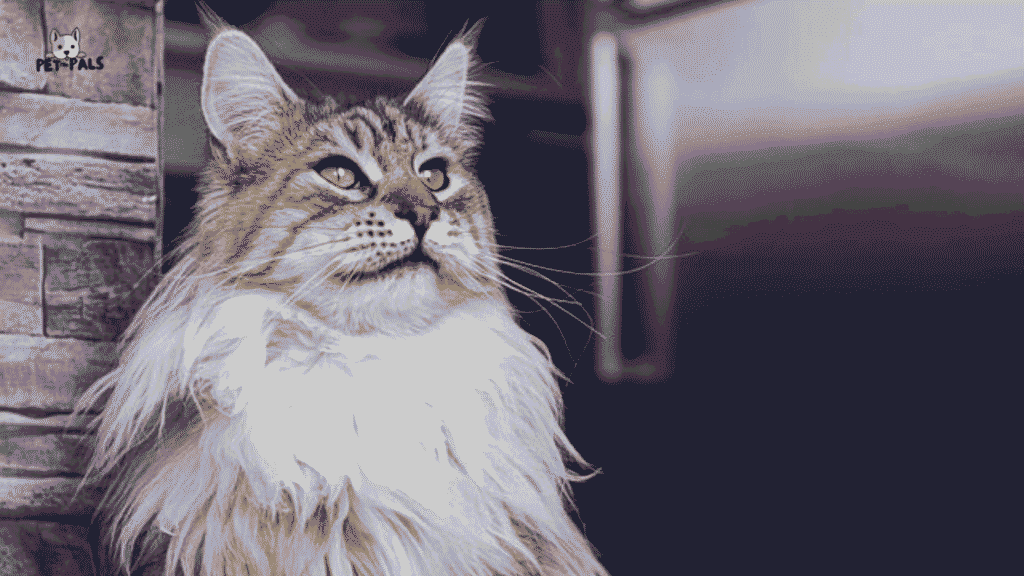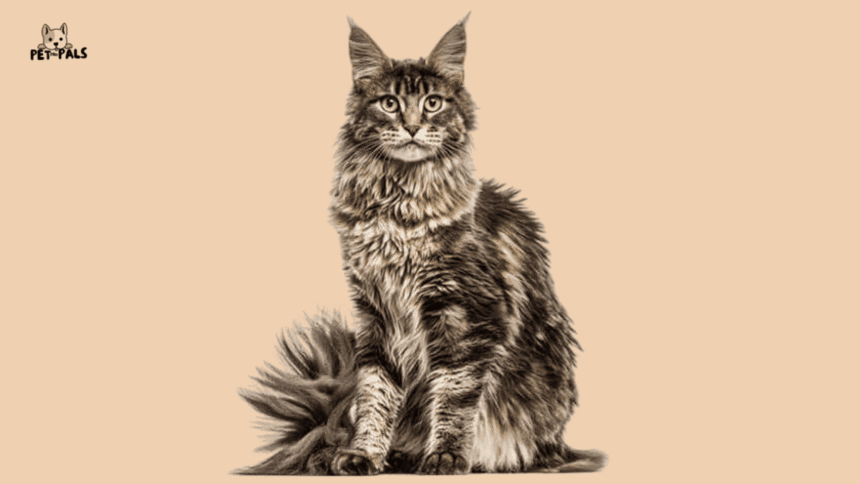Maine Coon cats aren’t just pets, they’re majestic companions known for their impressive size, thick lion-like manes, and playful intelligence. But behind all that charm lies a serious investment that often surprises first-time owners.
If you’ve been wondering, “How much does a Maine Coon cat really cost?” you’ve come to the right place. Unlike vague price guesses or outdated info, this 2025 Maine Coon Cost Guide cuts through the noise with clear numbers, insider breeder insights, and real-world expenses you’ll actually face.
You’ll learn why prices can range from a few hundred dollars at a shelter to thousands for a premium show-quality kitten, plus the ongoing costs most guides don’t mention, like grooming your giant fluffball or vet care tailored to their unique needs.
Skip the surprises and budget like a pro. Let’s dive into exactly what you can expect to spend, and how to get the best value without compromising on your future feline family member.
How Much Is a Maine Coon Cat in 2025?
| Type | Price Range | Notes |
|---|---|---|
| Pet Kitten | $800 – $2,000 | From breeders, not for show |
| Show Kitten | $2,500 – $4,000+ | Pedigree, show-quality |
| Adult Cat | $600 – $1,200 | Retired or older cats |
| Adoption (Rescue) | $100 – $400 | May include vet care |
A Maine Coon cat typically costs between $800 and $2,500 in 2025. Prices vary widely based on factors like the cat’s age, coat color, breeder reputation, and where you live. Pet-quality kittens tend to be more affordable, while rare colors or show-quality Maine Coons can easily top $3,000 or more.
Breeder vs Adoption Costs
When it comes to bringing home a Maine Coon, you have two main options: buying from a breeder or adopting from a shelter or rescue. Each method has its own price range, benefits, and considerations. Here’s a quick comparison to help you decide what’s best for you.
Breeder Prices
Buying from a reputable breeder usually costs between $1,000 and $2,500. Breeders often provide health guarantees and detailed pedigree information, which means you can be more confident about your cat’s genetic background and overall health. However, higher prices and waiting lists are common.
Adoption Prices
Adopting a Maine Coon or a Maine Coon mix typically costs between $75 and $400. Adoption fees often cover spaying/neutering, vaccinations, and microchipping, which can save you money upfront. Plus, adopting supports rescue organizations and gives a cat a second chance. The downside is that purebred cats are less common in shelters, and you might not know as much about the cat’s lineage or history.
| Method | Price | Benefits |
|---|---|---|
| Breeder | $1,000 – $2,500 | Health guarantee, pedigree, predictable traits |
| Adoption | $75 – $400 | Lower cost, rescue support, includes vaccinations |
Factors That Affect the Price
![How Much Is a Maine Coon Cat? [Complete Price & Care Breakdown]](https://petpropals.com/wp-content/uploads/2025/05/How-Much-Is-a-Maine-Coon-Cat-1024x576.png)
Several key factors influence the price of a Maine Coon cat, and understanding them can help you make a more informed decision when choosing your future feline friend. While the breed is known for its luxurious coat, large size, and charming personality, the cost behind each cat often reflects much more than just looks.
1. Reputation of the Breeder
Breeders with a strong reputation for producing healthy, well-socialized Maine Coons typically charge more. They invest heavily in vet care, proper nutrition, socialization, and health testing. Their experience and ethical practices add to the price, but also provide peace of mind.
2. Pedigree and Bloodline
A cat from a distinguished bloodline, especially one that includes award-winning or show-quality ancestors, will cost significantly more. These pedigrees prove the cat meets strict breed standards and often come with registration papers.
3. Geographic Location
Where you live plays a big role. Prices tend to be higher in urban areas or regions where Maine Coons are in high demand. If breeders are scarce in your area, you might also have to pay for transportation or delivery, adding to the overall cost.
4. Age and Size of the Cat
- Kittens are usually more expensive due to higher demand and early care costs.
- Adult cats, especially retired breeders or cats being rehomed, may cost less.
- Maine Coons grow to be very large cats. Bigger or more mature cats may be priced higher if their size aligns with breed expectations.
5. Coat Color and Rarity
Certain coat colors or patterns are rarer and can drive up the price. While classic tabby patterns are common, colors like silver, shaded, or smoke variants often cost more. Some buyers are willing to pay a premium for unique or striking color combinations.
6. Registered vs. Unregistered Breeders
- Registered breeders follow official breed standards, often provide documentation, and invest in proper health testing.
- Unregistered breeders might offer lower prices, but the risks are higher. These cats may lack health records, vaccinations, or may not be true Maine Coons.
When you’re budgeting for a Maine Coon, it’s important to look beyond just the sticker price. Each of these factors plays a role in the long-term quality, health, and happiness of your cat. Paying a little more upfront for a responsible breeder or rare bloodline could mean fewer health issues—and more joy—down the line.
One-Time Initial Costs Breakdown
Bringing a Maine Coon home involves more than just the purchase price—you’ll also need to budget for a few essential one-time setup costs. These initial expenses are key to making sure your new cat is healthy, comfortable, and well cared for from day one. Here’s what you should expect to cover:
Spaying or Neutering
If your cat hasn’t already been fixed by the breeder or shelter, this is usually one of the first things to take care of.
- Cost range: $100 – $300
This procedure helps prevent health issues and unwanted litters, and it’s often required if you’re not planning to breed.
Vaccinations and Microchipping
Your Maine Coon will need a series of vaccinations to protect against common feline diseases, especially in the first year. Microchipping adds an extra layer of security in case your cat ever gets lost.
- Vaccinations: $75 – $150
- Microchipping: $25 – $50
Basic Supplies
To make your home cat-friendly and comfortable, you’ll need to invest in some basic gear:
- Cat carrier: $30 – $60
- Litter box and litter scoop: $20 – $50
- Toys and scratching posts: $30 – $75
- Food and water bowls: $10 – $25
Initial Vet Visit
A health check-up within the first few days of adoption or purchase is important, even if your cat seems healthy. A vet can confirm vaccinations, check for parasites, and give your Maine Coon a clean bill of health.
- Cost: $75 – $150
Estimated Total One-Time Setup Cost: $500 – $1,000
While this might seem like a lot up front, most of these items are foundational and won’t need to be repurchased often. Investing in good-quality supplies and care from the beginning sets your Maine Coon up for a long, healthy, and happy life.
Monthly and Yearly Ownership Costs

Owning a Maine Coon isn’t just about the initial cost there are ongoing monthly and yearly expenses to keep your furry companion healthy, happy, and well-groomed. These gentle giants require a bit more in terms of food, care, and maintenance compared to the average house cat, so it’s important to know what to expect financially after the first setup.
Quality Food and Treats
Maine Coons are large, active cats with big appetites. Feeding them a high-quality diet is essential for maintaining their size, coat health, and energy levels.
- Monthly food and treats cost: $40 – $70
This includes premium dry food, wet food, and the occasional treat. Cheaper food may save money short term, but can lead to health problems later.
Litter and Cleaning Supplies
You’ll need to budget for a steady supply of litter, plus things like scoopers, deodorizers, and cleaning products.
- Monthly litter cost: $20 – $40
Larger cats like Maine Coons can go through litter faster, so don’t be surprised if this is slightly higher than average.
Annual Vet Visits and Vaccinations
Even healthy cats need a yearly check-up to monitor weight, dental health, and overall well-being. These visits typically include vaccine boosters and preventative treatments for fleas and worms.
- Yearly vet cost: $100 – $250
Unexpected health issues may raise this number, but routine care helps catch problems early.
Grooming Expenses
Maine Coons have long, thick coats that require regular brushing to prevent matting. While many owners groom at home, occasional professional grooming is helpful, especially for shedding seasons or deep cleaning.
- DIY grooming tools: $20 – $50 (one-time)
- Professional grooming (optional): $50 – $100 per session (2–3 times per year)
Insurance (Optional but Recommended)
Pet insurance can help cover the cost of emergencies, surgeries, or chronic conditions. While not essential, it can offer peace of mind, especially for a breed known for some genetic health issues.
- Monthly insurance premium: $20 – $40
This depends on the provider, plan, and your cat’s age and health history.
Estimated Yearly Cost of Maine Coon Ownership: $1,000 – $1,500
Here’s a quick breakdown of typical annual costs:
- Food and treats: $480 – $840
- Litter and supplies: $240 – $480
- Vet care: $100 – $250
- Grooming: $50 – $200
- Insurance: $240 – $480 (if used)
These numbers can vary, but they give a realistic picture of what it takes to care for a Maine Coon year-round. Planning ensures your cat stays healthy and you avoid financial surprises along the way.
Are Maine Coons Worth the Cost?
Maine Coons are worth the cost if you’re looking for a loving and playful companion. These cats are known for their affectionate nature and playful personalities, making them great family pets. They’re also super intelligent and can learn tricks or even walk on a leash, which adds to their charm.
They tend to get along well with kids and other pets, including dogs, so they’re a great fit for most households. Plus, they have a long lifespan, often living 12 to 15 years or more, so you’re looking at a long-term friend.
That said, they do come with high-maintenance grooming needs. Their thick fur requires regular brushing to avoid matting, which can be time-consuming or costly if you go for professional grooming.
Overall, if you’re ready for the grooming and costs, Maine Coons offer amazing value with their loving, fun, and loyal personalities.
Tips for Saving Money on a Maine Coon
Owning a Maine Coon doesn’t have to break the bank. Here are some tips to save money:
- Adopt Instead of Buying: Adopting from a shelter is cheaper than buying from a breeder and often includes vaccinations, spaying/neutering, and microchipping.
- Look for Deals on Food: Buy in bulk or subscribe to save on high-quality food for your Maine Coon.
- DIY Grooming: Learn to groom your cat yourself with quality brushes to avoid professional grooming costs.
- Preventive Care: Regular vet check-ups and vaccinations can prevent costly health issues.
- Shop Smart for Supplies: Take advantage of bulk purchases and discounts on litter, toys, and other cat supplies.
- Consider Pet Insurance: Insurance can help cover unexpected medical expenses.
These tips will help you save money while providing excellent care for your Maine Coon.
Final Thoughts
Maine Coons are truly a special breed, renowned for their affectionate nature, intelligence, and playful spirit. While the upfront cost and ongoing expenses can be significant, their long lifespan and strong bond with families make them a rewarding companion. Adopting, grooming at home, and shopping smart for food and supplies, you can cut down on costs while still providing exceptional care.
Their grooming needs and health care may require extra time and attention, but for those willing to commit, it’s well worth it. Ultimately, a Maine Coon’s loyalty and charm bring unmatched joy, making every penny spent an investment in a loving and lasting friendship for many years to come.
FAQ
Why are Maine Coon cats so expensive?
Maine Coons are more expensive than average cats due to their large size, quality pedigree, and specialized breeding requirements. Breeders invest in ensuring healthy bloodlines and proper care, which drives up the cost.
How much does it cost to feed a Maine Coon monthly?
Feeding a Maine Coon typically costs between $40 to $70 per month for high-quality food, considering their large size and high nutritional needs.
Can I adopt a Maine Coon from a shelter?
Yes, while rare, it is possible to adopt a Maine Coon from breed-specific rescues or shelters. Adoption fees are often much lower than purchasing from breeders.
What is the lifespan of a Maine Coon?
Maine Coons typically live between 12 to 15 years, although some can reach 18+ years with proper care and a healthy lifestyle.
Do Maine Coons require a lot of grooming?
Yes, Maine Coons require regular grooming due to their long, thick fur. Frequent brushing helps prevent matting and tangles, especially during shedding seasons.
How much is a Maine Coon cat?
The price of a Maine Coon cat can range from $800 to $2,500 or more, depending on factors such as pedigree, breeder reputation, and whether the cat is intended for pet, show, or breeding purposes.
What is the average price of a Maine Coon kitten?
On average, a Maine Coon kitten from a reputable breeder typically costs between $1,000 and $1,800. Prices can be higher for kittens with champion bloodlines or rare coat colors.
Are Maine Coon cats expensive to own?
Yes, Maine Coons can be relatively expensive to own. In addition to the purchase price, owners should budget for ongoing expenses like high-quality food, grooming, vet care, and potential health issues such as hip dysplasia or heart disease. Monthly costs can range from $100 to $200, depending on the cat’s needs.
Maine Coon cat cost vs regular cats?
Maine Coon cats are generally more expensive than regular domestic cats. While adoption fees for typical cats can range from $50 to $200, Maine Coons from breeders usually cost $1,000 or more. Additionally, their maintenance costs are higher due to grooming needs and potential health considerations.

